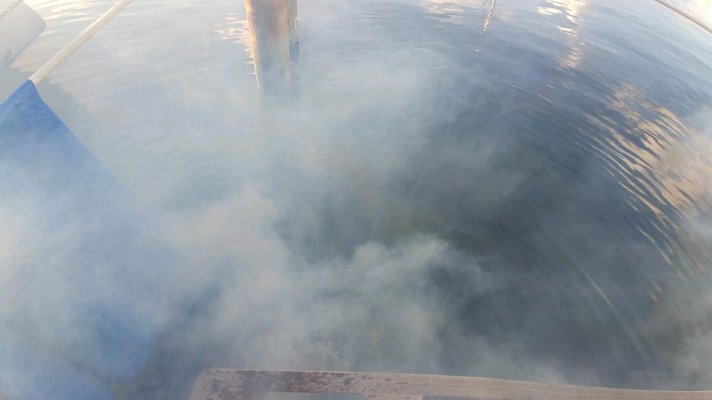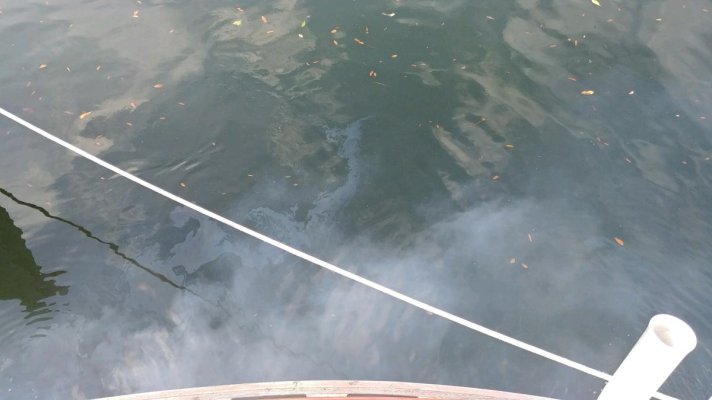My last boat had 6.354MGTs. My current boat has 6.354s.
/White/ lingering smoke with a diesel smell can be normal for any turbo version of these engines at idle, especially after a cold start and until warm up. The injector pump is old school and the curve cant be fully tuned to what a turbo needs, so it over fuels at low RPMs. The white smoke and maybe even slight to a little slicking is just unburned diesel.
A little bit of grey wouldn't surprise me, either, turbo or not. Basically, in a not-new old school engine there are plenty of relatively normal ways things can get a little inefficient with combustion for a little carbon to show up in the exhaust at idle, e.g. build up, slightly low compression, etc. If it is really dark, there is likely a more significant problem or restricted airflow (but then it would likely get. worse underway). If valve timing hasn't been checked -- it is fast and easy and might help a little.
Really dark smoke is never normal, except for the turbo version, under heavy acceleration as the engine RPMs need to speed up to get the needed air in.
Smoke that is clearly very blue is /never/ normal for those engines. They do not commonly burn oil. Having said that, a /little/ blue when cold is likely nothing to worry about. It could easily be aging oil control rings or valve seals, and those usually go a very, very long time in boat use before getting really bad. And, valve seals can be replaced in boat if they are a problem.
Another common issue on those is the oil seals in the turbos. If those are the issue, they tend to get bad fast and are usually inexpensive to have rebuilt. Check the turbo for oil (and play) and rebuild if either. This smoke is often seen as dark grey.
Can you post a picture?



